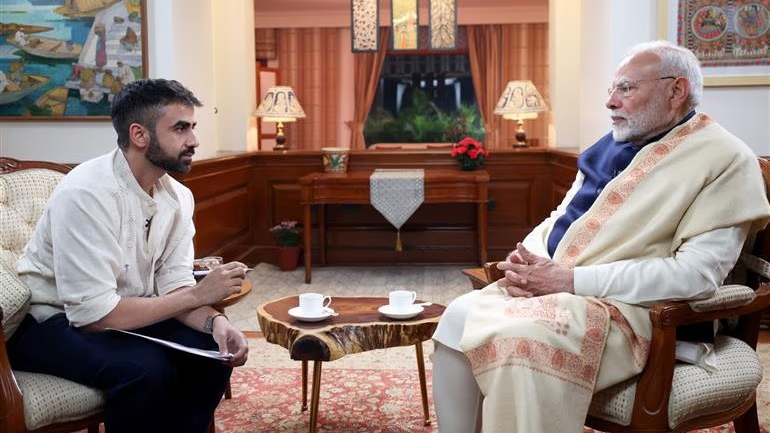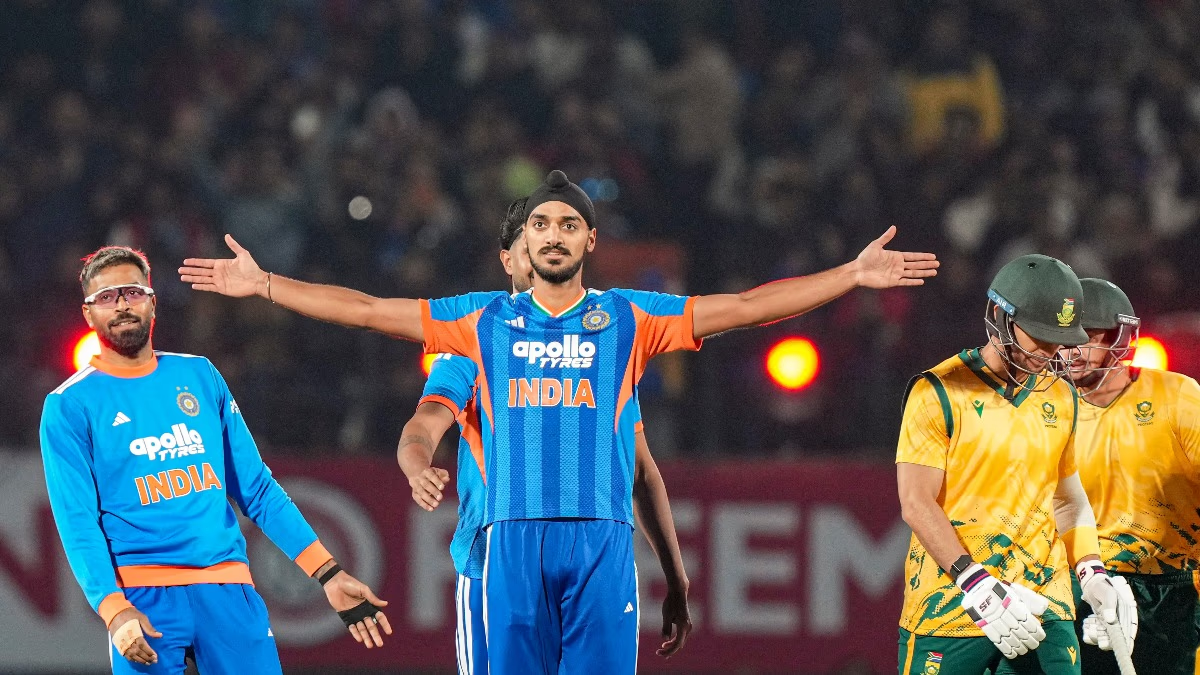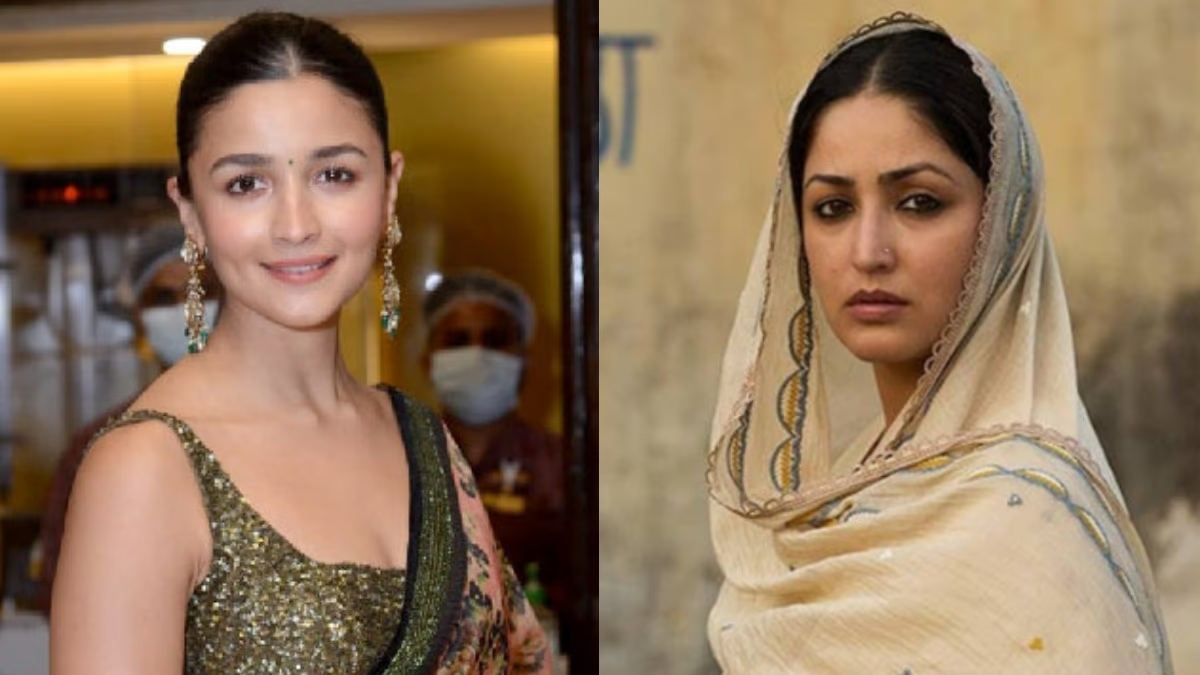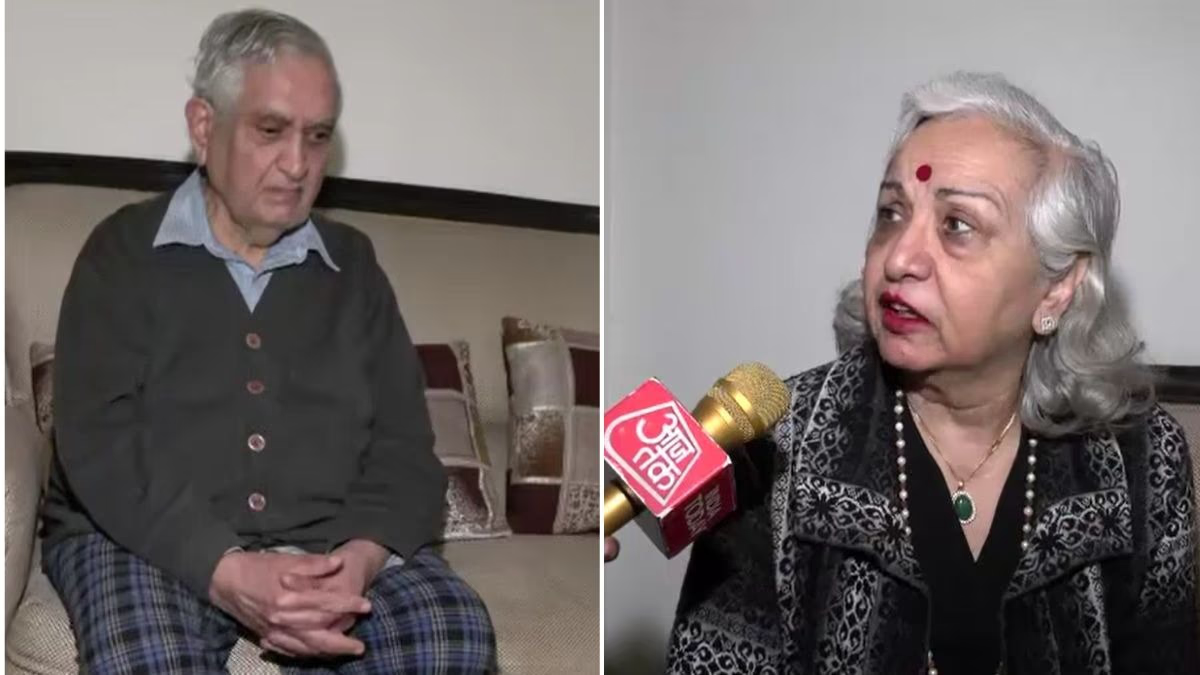Prime Minister Narendra Modi recently participated in a podcast. He shared that it was his first-ever podcast. The co-founder of Zerodha, Nikhil Kamath, engaged in this conversation with PM Modi. During this interview, the Prime Minister openly talked about his private life, politics, and the future of India. He stressed that politics needs more youth, urging young people not to perceive it as dirty but to become a part of it.
Read the complete interview here:
Prime Minister Modi-
How many podcast posts have you done so far?
Nikhil Kamath-
25 Sir.
Prime Minister Modi-
25
Nikhil Kamath-
Yes, but we only do it one night a month. One podcast every month and nothing else for the rest of the month.
Prime Minister Modi-
You give a person considerable comfort by allowing a month's time.
Nikhil Kamath-
We go into depth. Most of the podcasts we do are about entrepreneurship. Our audience is entirely in the 15-40 age category who want to start entrepreneurship for the first time, so we do episodes on artificial intelligence, the metaverse, pharmaceutical topics, and specific subjects like these. We've started a segment called 'People', where we've had conversations with people like Bill Gates about their respective industries.
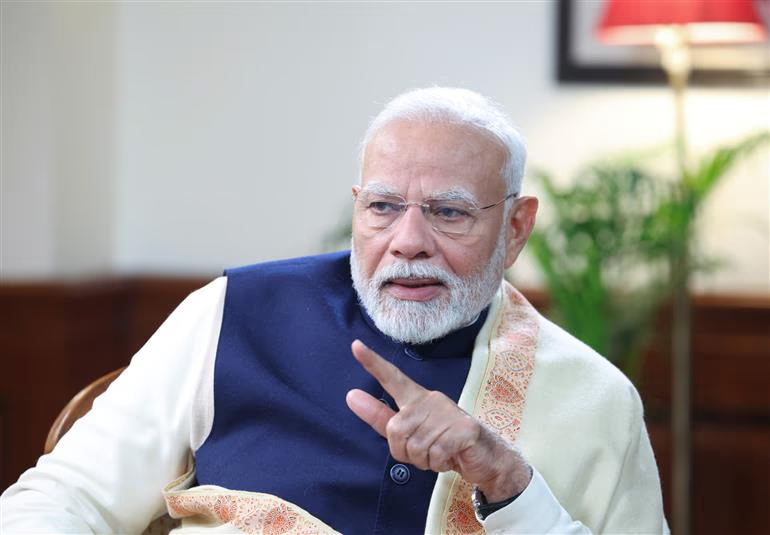
Source: aajtak
Prime Minister Modi-
For me, this podcast is happening for the first time, so this world is entirely new to me.
Nikhil Kamath-
Sir, forgive me if my Hindi isn't very good. I'm South Indian, mostly raised in Bangalore. My mother's city is Mysore where most people speak Kannada, and my father was near Mangalore. I studied Hindi in school but am not very fluent in speaking it. People say most communication is non-verbal, where they understand each other just by looking! So I don't think we'll have a problem.
Prime Minister Modi-
I'm not a native Hindi speaker either; we'll manage like this together.
This podcast isn't a traditional interview. I'm not a journalist. We mostly talk to those who want to start entrepreneurship for the first time, guiding them on what it takes to become an entrepreneur in an industry, where they'll get their first funding, and where to find online learning materials. Those are the areas we come from, and today, we'll try to explore the parallels between politics and entrepreneurship because I believe there are many similarities that nobody has discussed so far. Let's move forward in that direction if you want to ask some questions yourself in this podcast, and although I may not have good answers, you may ask. The first thing I'd like to talk about in this podcast is the first part of your life before becoming the Prime Minister, before becoming Chief Minister, where you were born. What did you do in the first ten years of your life? If you could shed some light on your early years.
Prime Minister Modi-
See, as everyone knows, I was born in Gujarat. There is a small town called Vadnagar in North Gujarat in the Mehsana district. When we were young, maybe only around 15,000 people lived there. That's what I roughly remember. I belong to that place. Like everyone has a village, I had mine too. My village was in the Gaekwad State. The Gaekwad State was characterized by a strong emphasis on education. There would be a lake, a post office, a library—certain elements that defined the Gaekwad State's village organization, and I studied in the primary school established by it. The lake meant I learned to swim there. I used to wash my family’s clothes, allowing me to visit the lake often. Later there was the Bhagavat Acharya Narayanacharya High School, BNI School. It was essentially a charitable school, unlike today's education systems. My schooling was there. Back then, it wasn't the 10+2 system; it was the 11th class. Somewhere I read that the Chinese philosopher was Xuanzang. He stayed in my village, and there was a plan to make a film about him. I might have written a letter to their embassy or someone, stating, 'I read somewhere that you're making a film about Xuanzang. He stayed in my village, and you should also mention that.' It was something I attempted many years ago.
Before that, in my village, there was a person named Rasik Bhai Dave who was a Congress leader and someone with some socialist ideas. Originally, he was from Saurashtra and had settled in my village. He used to tell us school kids, 'Wherever you go and find any stone with something written or any carving on it, collect those stones and place them in the corner of the school.' Gradually, it became a big pile. That's when I realized his intent was to collect stories from an ancient village, believing each stone held a story. When someone visits, they can see it. Perhaps it was his imagination. It drew my attention. In 2014, when I became Prime Minister, world leaders make courtesy calls. So, the President of China, Xi Jinping, made a courtesy call, extending greetings, etc., during which he expressed his wish to visit India. I welcomed him, saying he should definitely come, mentioning he wanted to visit Gujarat. I said, 'That's even better!' He then mentioned he wanted to visit your hometown, Vadnagar. I asked, 'What's the story behind that?' He said, 'Xuanzang, the Chinese philosopher, spent the longest time in your village, and when he returned to China, he stayed in my village too. So, that's the connection between us.'
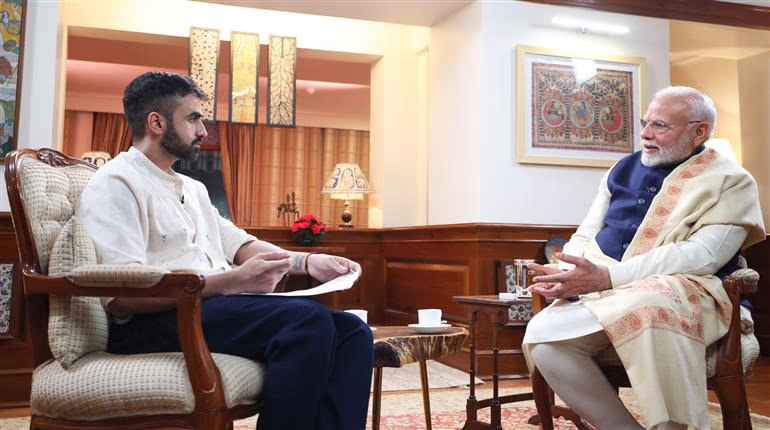
Source: aajtak
Question-
And if you could remember more about your childhood, were you a good student? What were your interests at that time?
Prime Minister Modi-
I was a regular pupil, not someone who would stand out or get noticed. However, one day, a teacher of mine, Valjibhai Chaudhary, who had a fondness for me, visited my father, sharing his hopes and expectations for me, mentioning that I had so much talent, but I was too scattered. Valjibhai had high hopes for me, and his affection influenced me greatly. Due to the love of my teachers, I wasn't driven by competition. I gravitated away from it, not showing much interest... I would just focus on passing my exams. Yet, I engaged in a lot of activities. Anything new, I would immediately take it up; it was my nature.
Question-
Sir, do you have any childhood friends who are still in touch?
Prime Minister Modi-
It was quite peculiar for me; I left home at a very young age, completely disconnecting myself from everything, with no contact with anyone. So, there was a huge gap and no connection or concern with anyone, and my life was such that no one would recognize me. Life didn't leave a space for anyone to address me as 'you.' Everyone still treats me with great respect. I had a teacher, Ras Bihari Manihar, who passed away recently at around 94. He used to write letters to me, addressing me informally. I had an urge to trace my school friends after becoming the Chief Minister and reconnect with them. My intention was to let them know that I hadn't changed, that I remained the same person who left the village years ago. I wanted to live that moment; the way was to sit with those friends. But I couldn't recognize them from their faces; there was a big gap in between, their hair had turned grey, and their children had grown up. I called them all up, perhaps 30-35 people gathered. We had dinner at night, reminiscing about our childhood days, but I didn't enjoy it much. It was because I searched for friends, but they saw the Chief Minister. The distance didn't bridge.
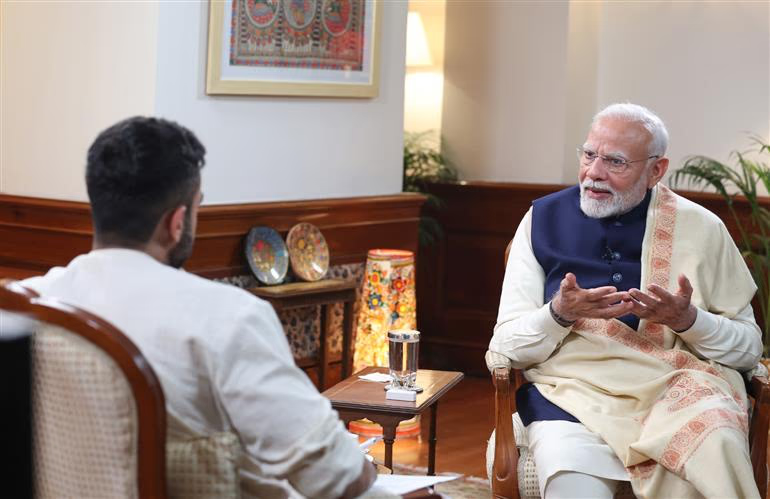
Source: aajtak
Question-
You've seen politics in both pre-social media and post-social media eras. How has politics changed during this period? Could you give some advice to a young person who wants to become a politician on how to use it?
Prime Minister Modi-
Sometimes people ask me when I meet a small group of children, and they ask, 'Sir, when you see yourself on TV, how does it feel?' Some kids even ask, 'You receive so much criticism day and night, how do you feel?' I tell them a joke. I am from Ahmedabad, and people from Ahmedabad have a unique identity with many jokes about them. I say, 'Once an Ahmedabadi was going with his scooter and barely bumped into someone, and the other person was furious, started abusing. The Ahmedabadi was just standing there with his scooter, while the other kept on ranting. At the same time, someone came by and asked, 'How can you stand there taking all those abuses?' The Ahmedabadi replied, 'Brother, he's giving, not taking away anything, is he?' It's very typical of an Ahmedabadi; while someone is giving, he's not taking away anything. I have resolved within myself that while they abuse or criticize, it's what they can give; what they have, they will give, and what I have, I will present. But you must be on the ground of truth, you must not have sin in your heart.'
Earlier, when I wasn't in politics, back when I worked in the organization, whatever happened, we people of Jan Sangh, I wasn't into politics at that time, we used to get so many abuses without having done anything, any abuses. Even unto the dry spells, politicians would get the blame. But even in those days of print media, some form of social media was there, today it might be more, but back then, you still had a large canvas available to search for the truth, many alternate paths are open, and today, the upcoming generation mostly verifies these things.
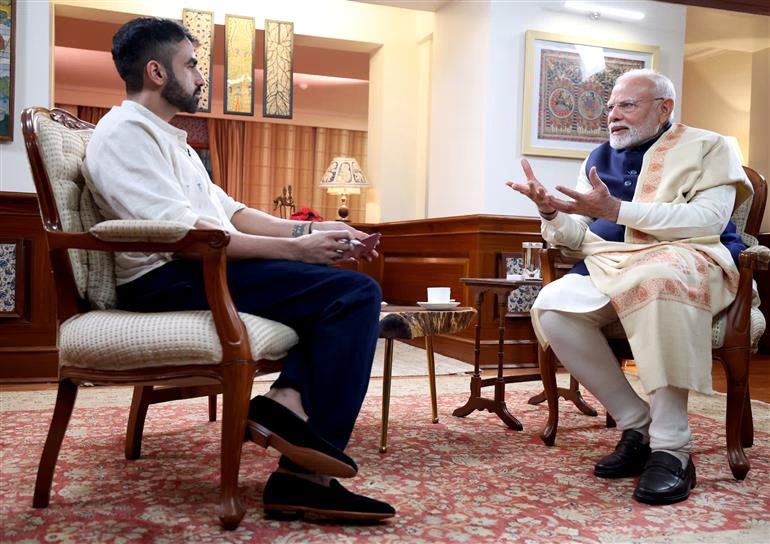
Source: aajtak
Question-
Are you saying young people should not think, 'I want to become a politician' but rather think about what they'll do once they become a politician?
Prime Minister Modi-
Most people don't initially aim to become politicians; they say 'I want to become an MLA,' 'I want to become a corporator,' 'I want to become an MP,' which is a different category. Entering politics doesn't necessarily mean contesting elections; it's merely a democratic process; if the opportunity arises, make use of it, but the actual task is to win the hearts of the people, elections are won later. Winning the hearts of the people requires living among them and connecting lives with theirs, and there are people like this even today in the country.
Question-
Are there any young politicians today that you see having that potential in them?
Prime Minister Modi-
There are many such individuals who immerse themselves, work day and night tirelessly, operate in mission mode.
Question-
One particular person in your mind?
Prime Minister Modi-
If I mention someone, it would be an injustice to many others, it's my responsibility not to be unjust to anyone. I see many names, many faces, many details of people I am aware of.
...
